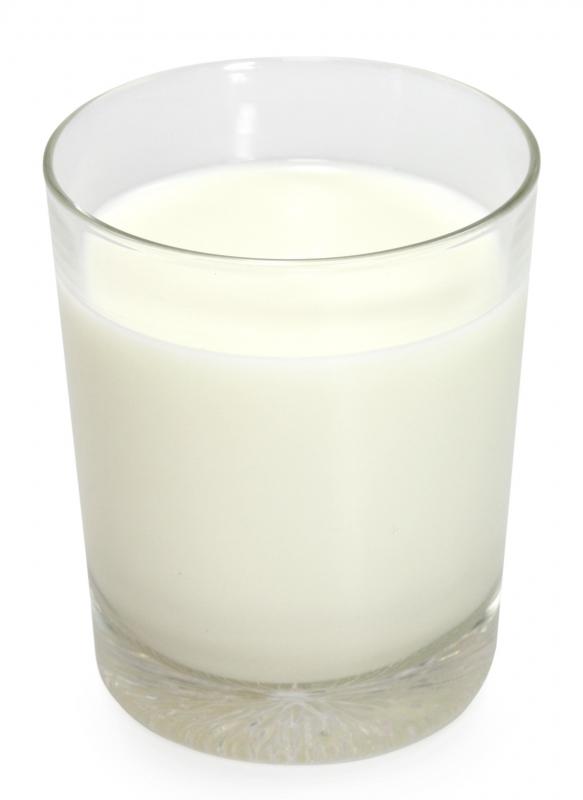At WiseGEEK, we're committed to delivering accurate, trustworthy information. Our expert-authored content is rigorously fact-checked and sourced from credible authorities. Discover how we uphold the highest standards in providing you with reliable knowledge.
What is Milk Sensitivity?
Anyone who has digestive problems or allergy-like symptoms after ingesting dairy products may be experiencing milk sensitivity. The body may have an adverse reaction to dairy for several reasons, though the most common causes are lactose intolerance and milk allergies. Lactose is a natural sugar present in milk, and many people are unable to digest it properly. People with milk allergies experiences adverse reactions when their immune systems mistakenly try to combat the proteins in milk. Individuals with either type of milk sensitivity can usually avoid problems by drinking lactose-free milk substitutes and taking dietary supplements to maintain vitamin levels.
The digestive system naturally produces an enzyme known as lactase, which aids in the breakdown of milk sugars. A lactose intolerant digestive system typically does not produce enough lactase to effectively break down lactose into its component parts. This can result in symptoms such as stomach upset, gas, bloating, and diarrhea. A person may be born with milk sensitivity, or lactose intolerance can develop as an individual ages and the body becomes less dependent on nutrients from milk.

Most people with mild lactose intolerance can still enjoy dairy products in limited amounts. If a person experiences negative symptoms frequently, however, he or she may need to investigate lactose-free dairy substitutes, like soy milk and hemp milk. Most dairy alternatives taste very similar to milk, and provide many of the same vitamins and nutrients. It is important to speak with a physician about lactose issues before making major changes to the diet, however. A doctor can accurately diagnose a lactase deficiency and rule out other potential causes, such as digestive diseases.

Milk allergies occur when the immune system recognizes milk proteins as harmful foreign substances. Whey and casein proteins found in milk trigger the release of histamines in an allergic person, which usually leads to a number of uncomfortable symptoms. After ingesting dairy, an individual with a milk allergy might experience nausea, stomach pain, and an itchy throat. People with severe allergies may start wheezing, coughing, and vomiting. Most symptoms related to this type of milk sensitivity begin to manifest immediately after consuming a dairy product.

Milk sensitivity that is a result of an allergy may be more difficult to combat than lactose intolerance. Many common foods and beverages contain milk proteins, and a person with a severe allergy can unexpectedly experience a reaction. Doctors can diagnose allergies by analyzing a patient's symptoms and checking blood samples for immune system deficiencies. Once diagnosed, a patient is typically instructed to completely abstain from dairy and take antihistamines immediately if symptoms start to develop.
AS FEATURED ON:
AS FEATURED ON:













Discuss this Article
Post your comments